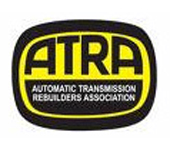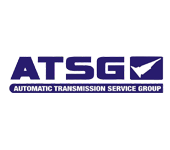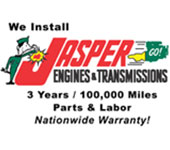817-446-7295 or 682-321-7117 | 2921 S Cooper St #101 Arlington, TX 76015
AUTONET TV
Archive for August 2025Before You Buy that Used Vehicle (Having a Used Car Inspected Before Buying)Posted August 31, 2025 4:21 AMLet's face it. New vehicles are expensive, so finding a good used one can save drivers a lot of money. It's tempting to look through ads, find a private seller who has what you're looking for and pay a price you think is a great deal. But when you go over to look at a used car, do you really know what to look for to uncover potential problems with it? The answer is probably no. Used cars can look great on the outside, maybe even have lustrous paint and a super clean interior. But is it possible that vehicle's been in an accident? Does it have electrical problems you can't detect easily? Is any fluid leaking that you don't know about? Think about it. You are about to spend thousands of dollars for a complex machine and you're considering judging its condition without much expertise. That's why it makes sense to have a qualified technician inspect any used vehicle you're considering buying. Many vehicle repair facilities will do it for around $100-$200. They'll check to see what's working right and what's not working. They'll check for leaks and how strong the battery is; they'll look for signs it's been in an accident or has been painted. They'll look in places you'd find inaccessible, and they'll take it for a test drive to see what noises, vibrations and smells might give clues to any major problems. An inspection usually takes about an hour. You should have an inspection done by a technician you know and trust. They'll have your best interests in mind. And the inspection should be done before you start negotiating a price with the seller. It's money well spent to either give you peace of mind that you're getting a good vehicle or steer you away from a lemon. One sign a used vehicle isn't a good deal? If the buyer refuses to let you have it inspected. That says just about everything that needs to be said. Westmoreland Transmissions (Timing Belt)Posted August 24, 2025 4:11 AMYou may have heard about an important part of your vehicle's engine called a timing belt, and many know that if that belt breaks, it can cause some very serious engine problems. Not all vehicles have them, and the ones that do generally have smaller engines. The timing belt keeps the engine synchronized so that every time a spark plug fires, the crankshaft, camshaft, pistons, and valves are all working together. Timing belts will eventually have to be replaced, and most vehicle manufacturers recommend when that should be. Typically, it's around every 60,000-100,000 miles, or 100,000-160,000 km. It's a good idea to stick to your vehicle's schedule or be alert for signs that the timing belt may be failing prematurely. Some of those symptoms? Maybe your engine won't even turn over when you try firing it up. You might hear a ticking or banging sound under the hood. Perhaps you spot an oil leak or notice the engine misfiring. If any of those are happening to your vehicle, we strongly advise you to bring it in to us so we can have a technician see what's causing the issue. Again, if your timing belt breaks, it can cause serious, expensive engine damage to valves and pistons. It is far better to have the timing belt replaced before it breaks. Replacing it is fairly involved, and other associated parts, such as the water pump, thermostat, tensioner, and idler pulleys may be replaced at the same time. That way, your timing belt is more likely to last another 60,000-100,000 miles/100,000-160,000 km without any problems. Timing belts are being used in fewer vehicles, with more and more using timing chains since they last longer. If you're wondering if your vehicle has one, contact our service adviser who can check. Maybe it's time to schedule a timing belt replacement to keep your vehicle's engine parts working in harmony as they should. Westmoreland Transmissions Command Performance (Engine Air Filter)Posted August 17, 2025 4:31 AMThe internal combustion engine in your vehicle counts on two things that mix together to be burned in the engine for power: fuel and air. Both are important, of course. If you run out of fuel, your engine won’t run at all. Since there’s plenty of air around, you won’t run out of air, but you could feel your vehicle’s performance suffer if the engine air filter starts to get clogged. It's important that the air that enters your engine be free of dirt, dust, and debris to prevent damage to internal components. That’s where the engine air filter comes in. It prevents those particles from entering the engine, an important job that most people just take for granted. After a while, your air filter will get dirty, which results in less air reaching the engine. Modern fuel injected engines can adjust the amount of gas to mix with the air that is getting in, so your fuel economy won’t change significantly. What will change is how well the engine performs, its acceleration. In one test, a US Department of Energy study showed that a dirty air filter reduced a vehicle’s get-up-and-go by as much as 11 percent. The company that made your vehicle includes guidelines in your owner’s manual on how frequently that filter should be changed, and doing so will maintain your engine’s performance. If you drive in dusty, dirty areas or those with a lot of industrial pollution, we recommend you replace the engine air filter more frequently than the manufacturer’s recommendations. When you bring your vehicle to us for regular maintenance, we will routinely check several components, including your engine air filter, and recommend a change when we see signs it’s needed. It’s good for your engine, and you’ll enjoy the performance you expect. Westmoreland Transmissions When Metal Meets Metal (Wheel Bearings)Posted August 10, 2025 4:25 AMWhat part of your vehicle has little metal balls inside that are lubricated and allow you to cruise on down the road? They are wheel bearings, and automotive designers might argue they are human beings' second greatest invention of all time (the first is, of course, the wheel!). You have a wheel bearing at each wheel. They allow your wheels to turn freely, minimizing friction that would ordinarily slow you down when metal meets metal. When one of your wheel bearings starts to go bad, it lets you know. A wheel bearing does its work quietly when it's in good health but starts getting noisy when it isn't. People describe the noise differently. Sometimes it sounds like road noise, a pulsating, rhythmic, sound. That pulse speeds up when your vehicle speeds up. Here's what's happening when you hear that sound. As mentioned, the bearing has these little metal balls inside a ring. They have a lubricant inside to reduce friction between the balls; modern wheel bearings are sealed and they're intended to do their job without any maintenance. Wheel bearings take a beating; you hit some rough potholes or go over some uneven railroad tracks. Sometimes water can get into a bearing and reduce the ability of the lubricant to do its job. Time starts to take its toll, too. When the lubricant isn't reducing friction like it should, the bearing can heat up. One of those little balls can start shedding pieces of metal and soon those shards start grinding up the other balls. Friction takes over and soon your wheel isn't turning smoothly. That's what's causing the sound. If a wheel bearing is not fixed, it could eventually seize up completely, and you can be stranded. It's a lot easier if you heed the early warning signals, that pulsating noise. Now, sometimes a similar noise can be caused by a bad tire, but in either case, it's important to have it checked out. Our Westmoreland Transmissions technicians will be able to tell you fairly quickly what the problem is and offer a solution. Wheel bearings generally don't fail often and usually last from 85,000-100,000 miles/140,000km to 160,000km. But consider them a long-term maintenance item that, once fixed, will keep you heading smoothly to the next destination. Westmoreland Transmissions What is a TPS? (Throttle Position Sensor)Posted August 3, 2025 4:19 AMYou know you have an accelerator pedal; step on it and your vehicle is supposed to go. But did you know there is a part in your vehicle that keeps track of where the throttle is? It's called the Throttle Position Sensor, or TPS. The TPS is a sensor that helps your vehicle figure out the right mix of air and fuel is reaching your engine. It does that by keeping track of the throttle and sending that information to your vehicle's computer. Other factors play a role in how well your engine is performing, including air temperature, how fast the engine is turning over and air flow. When the TPS isn't working right, you may find your vehicle won't accelerate or doesn't have the power you're expecting when you press on the accelerator. In some cases, it may accelerate on its own. Sometimes your vehicle won't go over a certain speed. Your Check Engine light may go on. Any of these symptoms should be checked out soon. If your TPS stops working right, your vehicle may not be safe to drive. Fortunately, most vehicles have a "limp home" mode that will allow you to get off a busy road to a safe spot. Your service advisor can let you know which TPS is the correct replacement for your vehicle. Your shop may have to re-program the new TPS so it works correctly with other software in your vehicle. It's a fact of life these days that computers control many of a vehicle's functions. The sensors that feed information to those computers help make your vehicle work the way it was engineered to and keep you motoring down the road safely and efficiently. Westmoreland Transmissions | ||
SearchArchiveApril 2018 (16)May 2018 (5) June 2018 (4) July 2018 (5) August 2018 (4) September 2018 (5) October 2018 (4) November 2018 (4) December 2018 (5) January 2019 (5) February 2019 (4) March 2019 (5) April 2019 (4) May 2019 (4) June 2019 (5) July 2019 (4) August 2019 (4) September 2019 (5) October 2019 (4) November 2019 (4) December 2019 (5) January 2020 (5) February 2020 (4) March 2020 (5) April 2020 (4) May 2020 (5) June 2020 (4) July 2020 (4) August 2020 (5) September 2020 (4) October 2020 (4) November 2020 (5) December 2020 (4) January 2021 (6) February 2021 (4) March 2021 (4) April 2021 (4) May 2021 (5) June 2021 (4) July 2021 (4) August 2021 (5) September 2021 (4) October 2021 (5) November 2021 (4) December 2021 (4) January 2022 (6) February 2022 (4) March 2022 (4) April 2022 (4) May 2022 (5) June 2022 (4) July 2022 (5) August 2022 (4) September 2022 (4) October 2022 (5) November 2022 (4) December 2022 (4) January 2023 (5) February 2023 (4) March 2023 (4) April 2023 (5) May 2023 (4) June 2023 (4) July 2023 (5) August 2023 (4) September 2023 (4) October 2023 (5) November 2023 (4) December 2023 (4) January 2024 (5) February 2024 (4) March 2024 (5) April 2024 (4) May 2024 (4) June 2024 (5) July 2024 (4) August 2024 (4) September 2024 (5) October 2024 (4) November 2024 (4) December 2024 (5) January 2025 (4) February 2025 (4) March 2025 (5) April 2025 (4) May 2025 (4) June 2025 (5) July 2025 (4) August 2025 (5) September 2025 (4) October 2025 (4) November 2025 (5) December 2025 (4) January 2026 (4) February 2026 (3) | CategoriesWhat Customers Should Know (54)Battery Replacement (1)Steering (10)Maintenance (8)Fuel Economy (4)Keys to a long lasting vehicle (2)Check Engine Light (2)Air Conditioning (9)Battery (10)Tires and Wheels (4)Auto Safety (4)Transmission (3)Alternator (2)Fuel Saving Tip: Slow Down (2)Shocks & Struts (3)Fluids (5)Automotive News (1)Brakes (12)Older Vehicles (1)Service Intervals (1)Drive Train (2)Oil Change (8)Cooling System (3)Service Standards (1)Windshield Wipers (2)Headlamps (2)Winter Tires (1)Exhaust (7)Customer Detective Work (1)Fuel System (3)Tires (7)Alignment (5)Tire Rotation and Balancing (3)Transfer Case Service (1)Suspension (1)Winter Prep (2)PCV Valve (1)Safety (2)TPMS (1)Inspection (3)Timing Belt (3)Shocks and Struts (1)Brake Service (2)Spark Plugs (1)Wheel Bearings (1)Engine Air Filter (1) | |
coupons
HOLIDAY SPECIAL
4L60E With Torque Converter
view coupon
Carry Out - Normal Price $1,600
Carry Out - Holiday Price $1,400
Testimonials
Randy C, 10/21/2025
VERY CLEAN and organized shop. Very friendly staff and easy to work with. All options were explained well. One of the best shops I have worked with, and I am a former Fleet manager, and I have worked with, and I have tried a bunch of them. Highly recommend... They really seem to know their stuff. Great experience















